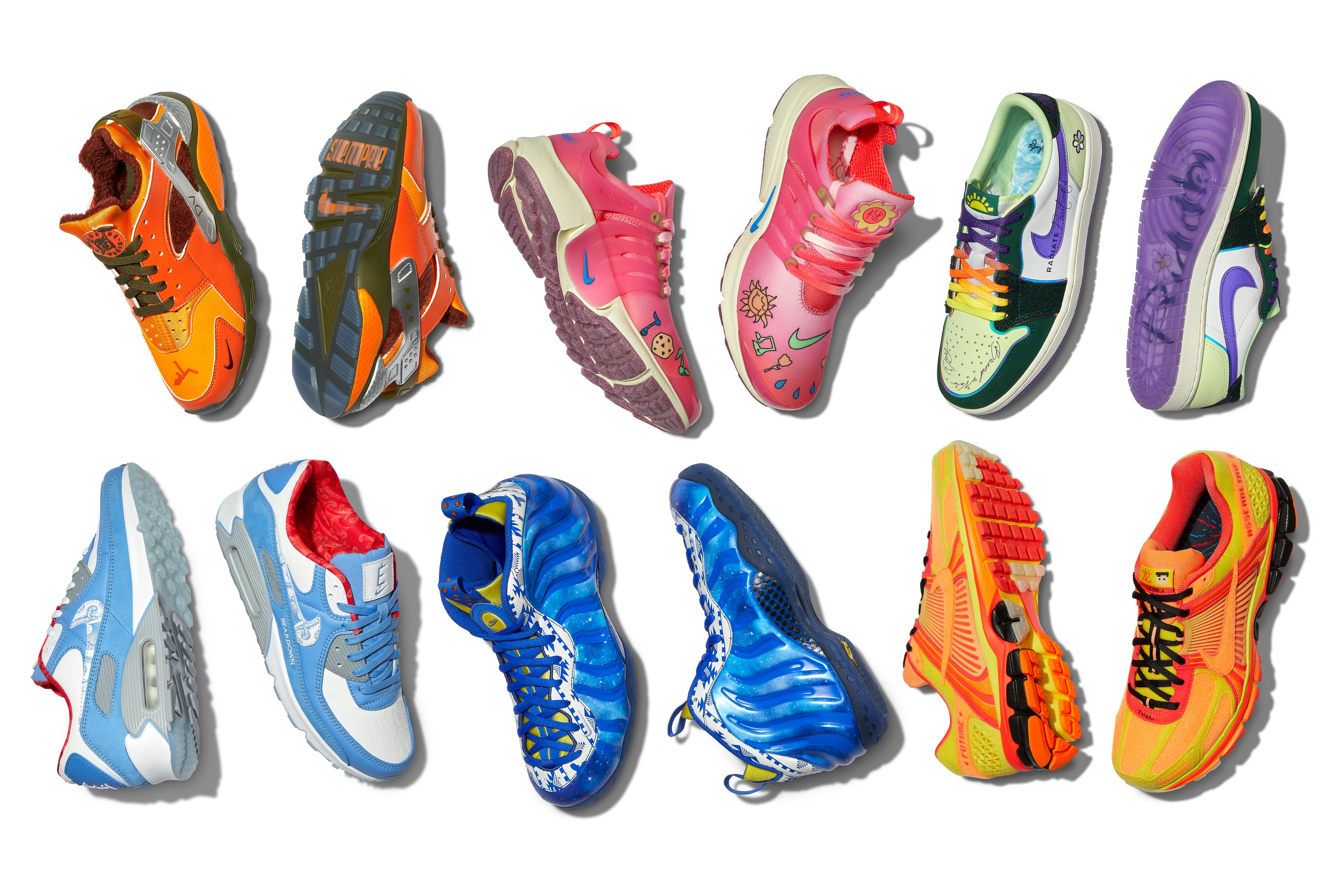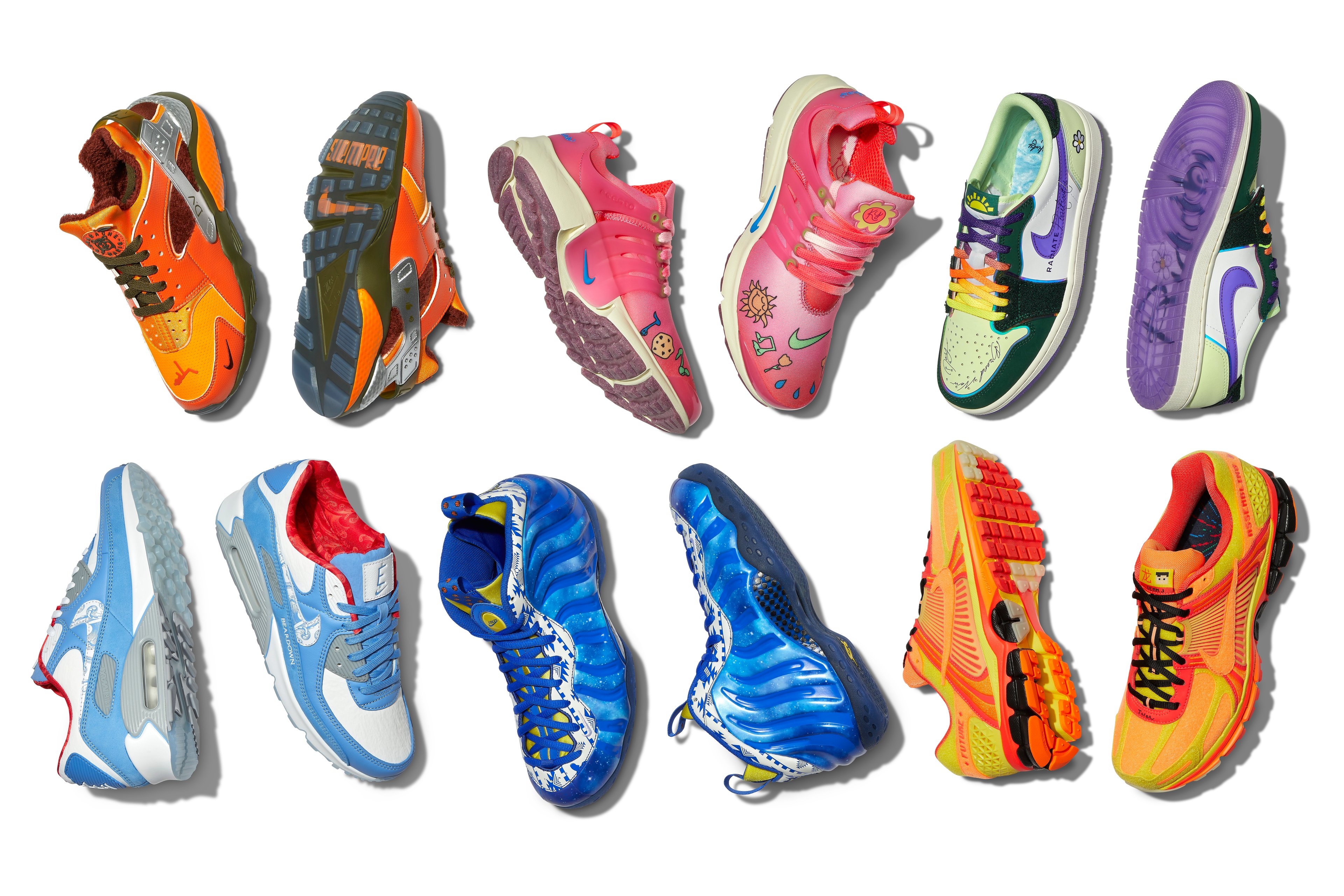Dividend stocks tend to outperform their non-dividend-paying peers over the long term, and that's why many investors aim to tilt their portfolio toward companies that send these regular checks to their shareholders.
Below, we'll look at the biggest footwear specialists -- Nike (NKE 0.08%), Finish Line (FINL +0.00%), Foot Locker (FL +0.00%), Wolverine World Wide (WWW 3.38%), and DSW (DSW +6.34%) -- that promise income investors a steady stream of direct cash returns.
Top dividend stocks in footwear
|
Company |
Market Capitalization |
Dividend Yield |
Payout Ratio |
|---|---|---|---|
|
Nike |
$94 billion |
1.3% |
29% |
|
Finish Line |
$576 million |
2.9% |
69% |
|
DSW |
$1.7 billion |
4% |
53% |
|
Foot Locker |
$10 billion |
1.7% |
22% |
|
Wolverine World Wide |
$2.5 billion |
0.9% |
27% |
Data source: Yahoo! Finance.

Image source: Getty Images.
Nike
Footwear accounted for 61% of Nike's revenue last year, which makes the sports apparel titan a less-concentrated industry bet than the other stocks on this list. Yet income investors might be turned off by its unusually low dividend yield and tiny payout. Since Nike considers itself a growth company, management's priority is to plow profits back into the business before sending excess cash to shareholders.
The company is struggling through slowing sales growth and declining profit margins, in part because of surging demand for online shopping. It controls several of the industry's most valuable brands, though, including the Jordan and Nike franchises. Its $3 billion annual marketing budget, meanwhile, provides a formidable defense against rivals hoping to chip off some of its dominant market share.
Finish Line
Finish Line is one of the many retailers that sells Nike products, and it was hit especially hard by the industry slowdown this past year. The stock hit a seven-year low in late March after the company revealed that it had to slash prices to hold sales declines to a manageable level over the holidays. Finish Line's 29% profit margin was down sharply from the prior year's 34%.
The stock's decline has played a key role in pushing the dividend yield near 3%, but so have management's aggressive boosts. Executives hiked the dividend at a double-digit pace in each of the last four years. Finish Line's success at fixing its sales growth trends will prove critical to any rebound in the stock, and to further market-thumping payout raises.
DSW
DSW is a favorite fashion destination, especially in the women's footwear category, which makes up 69% of the business. Its latest results included a brutal 7% drop in comps, but also marked the retailer's second straight quarter of improving profits following four consecutive quarterly declines.

Image source: Getty Images.
Investors buying this stock shouldn't look for strong dividend growth, at least not for several years. The company left its payout unchanged last year as comps drifted into negative territory. And, with aggressive moves into the online selling space like the recent acquisition of Ebuy, management has more pressing demands for its cash than giving income investors significant annual raises.
Foot Locker
Foot Locker picked a great time to focus on its international expansion. While its overall pace of sales gains has declined in each of the last three years, the international segment has been kicking in bigger and bigger contributions. As a result, fiscal 2016 marked the retailer's seventh straight year of steady sales and profit growth.
Like Nike, the company is currently prioritizing growth initiatives over cash returns, and that's the right long-term strategy. If its bottom-line profitability continues rising toward double-digits, though, patient income investors are likely to enjoy hefty payout increases over time.
Wolverine World Wide
Wolverine World Wide owns a deep portfolio of footwear brands including Merrell, Keds, and Hush Puppies. The stock has risen sharply over the past year -- mainly because, unlike many retailers, it achieved its original 2016 sales growth targets despite a tough overall selling environment. Organic revenue fell 5% last year as adjusted gross margin ticked up to 39.7% of sales.
Executives believe sales trends will improve in 2017 even though they're not calling for a rebound in industry growth. Yet, thanks to its tiny yield, small payout promise, and short dividend history, this stock isn't likely to earn a spot in most income investors' watch lists.








